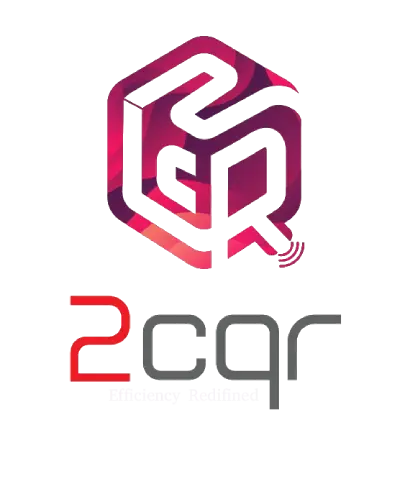In recent years, Radio-Frequency Identification (RFID) technology has made significant strides in transforming various industries, and the healthcare sector is no exception. Hospitals are complex environments where efficient management of resources, patient care, and asset tracking are crucial for providing quality healthcare services. RFID hospital management systems have emerged as a game-changer in optimizing hospital operations, enhancing patient care, and ensuring the overall safety and efficiency of healthcare facilities. In this blog, we'll explore the multifaceted applications of RFID technology in hospitals and the numerous benefits it brings to the healthcare industry.
1. Patient Identification and Tracking
One of the primary applications of RFID technology in hospitals is patient identification and tracking. RFID wristbands or tags can be assigned to patients upon admission, ensuring that each patient is accurately identified throughout their hospital stay. These RFID tags contain essential patient information, such as name, medical history, allergies, and prescribed medications. Hospital staff can use RFID readers to scan the tags quickly, reducing the risk of errors in patient identification and treatment.
2. Asset Management for Medical equipments
Hospitals are home to a vast array of expensive medical equipment, ranging from life-support machines to diagnostic tools. Efficient asset management is crucial to maintaining the proper operation of a healthcare facility. RFID technology offers a robust solution by allowing hospitals to tag and monitor equipment. Often integrated with the hospital's Enterprise Resource Planning (ERP) system, RFID asset management ensures seamless coordination between asset tracking and overall hospital operations, enabling efficient allocation of equipments based on real time availability, preventive maintenance based on the equipment’s usage or on timely basis , and cost-effective utilization of valuable equipment.

3. Inventory Management for Medicines
Accurate inventory management is vital to ensure the availability of essential medical supplies, such as medications, syringes, and consumables for patients at the right time. Unavailability of crucial medications can prove fatal for patients in critical conditions. RFID tags applied to these items enable hospitals to monitor stock levels in real time. When supplies run low, the system can automatically generate reorder requests, the concerned staff can approve the reorder request for preventing shortages and guaranteeing the availability of medicines at critical times.
4. Infection control monitoring
Infection control is a top priority in healthcare settings, especially in hospitals. RFID technology can significantly contribute to monitoring staff and patient movements, enhancing hygiene compliance. In scenarios where a staff member or patient enters a room with an infected individual, RFID technology can immediately register their entry and cross-reference it with the patient's infection status. This enables hospitals to promptly identify potential exposure risks, trigger infection control protocols, and notify relevant personnel for necessary precautions, thereby minimizing the spread of infections within the healthcare facility.
5. Patient Flow Optimization
Optimizing patient flow is essential for hospitals to deliver timely and efficient care. RFID technology aids in monitoring and optimizing the movement of patients within the facility. Each patient wears an RFID tag, and as they move from one department to another, RFID readers detect their location in real-time. Real-time tracking allows staff to identify bottlenecks, allocate resources efficiently, and ensure patients receive prompt care. This not only enhances the patient experience but also improves overall hospital workflow.
6. Access Control and Security
RFID technology can also be employed to enhance access control and security within hospitals. By utilizing RFID badges or cards, hospitals can restrict access to specific areas, such as operating rooms, laboratories, and medication storage, ensuring that only authorized personnel can enter. This enhances the security of sensitive patient data and valuable medical assets.
7. Blood and Medication Tracking
Tracking the movement and usage of blood products and medications is critical in healthcare. RFID tags can be attached to blood bags and medication containers, allowing hospitals to monitor their storage conditions and usage history. This not only ensures the safety of these vital resources but also aids in compliance with regulatory requirements.
8. Patient Records Management
RFID technology can streamline the management of patient records by tagging physical files and digital storage devices. This enables quick and secure access to patient data, improving the efficiency of healthcare professionals and reducing the risk of information misplacement or loss.
RFID technology has emerged as a transformative force in healthcare management, offering a wide range of applications that improve patient safety, enhance asset management, optimize inventory control, ensure infection control, streamline patient flow, bolster security, and aid in regulatory compliance. As hospitals increasingly adopt RFID solutions, they are taking substantial steps toward providing high-quality healthcare services, reducing operational costs, and ensuring a safe and efficient healthcare environment for patients and staff alike. These are just a few of the RFID applications in hospitals, but the potential for innovation is boundless. When combined with other latest technologies, such as artificial intelligence and IoT, RFID holds the promise of unlocking even more transformative solutions for healthcare management. The future of healthcare is ripe with opportunities for RFID technology to continue revolutionizing patient care and hospital operations.
Contact us to explore the latest RFID based Hospital management solutions today!

